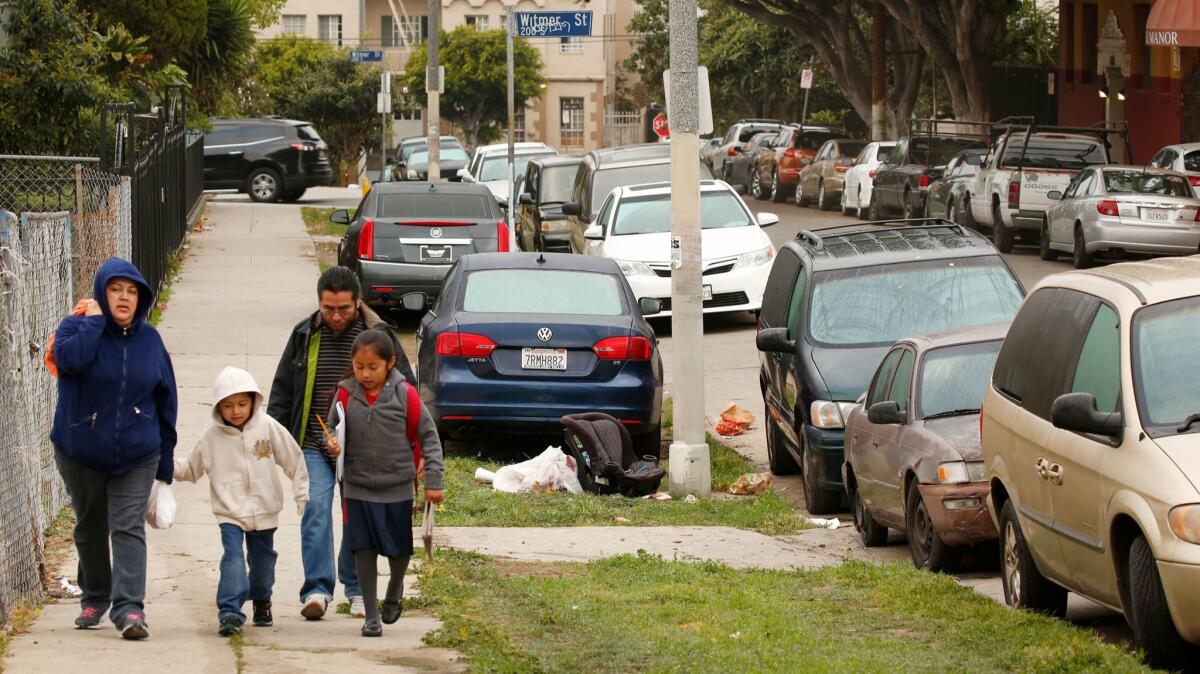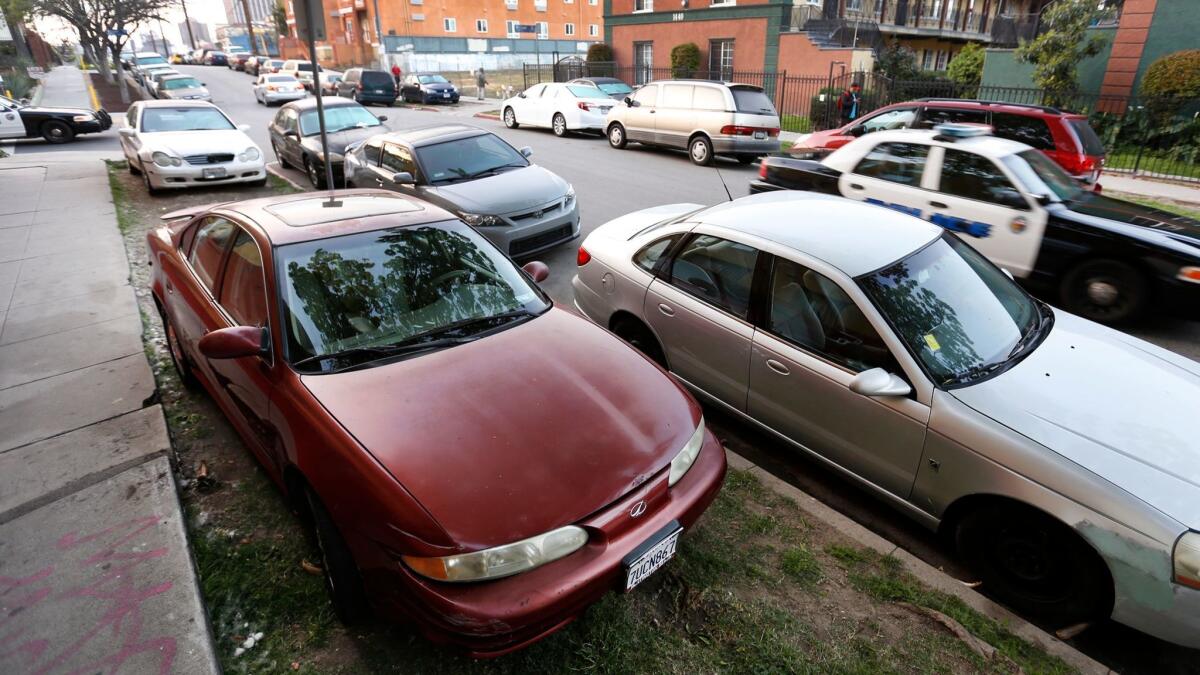You may soon no longer be able to park between the sidewalk and the curb in L.A.

- Share via
For more than five years, Los Angeles officials have turned a blind eye to drivers who park on the narrow strips of land between the sidewalk and the curb.
The city’s lenient stance, adopted in 2011, was never advertised. But many drivers in dense areas where parking can be fiercely competitive eventually realized that they would not be ticketed for leaving their cars on the landscaped areas that run parallel to the street.
So many drivers began adopting the practice that residents in Westlake, East Hollywood and other central neighborhoods began planting saplings and erecting poles, fences and other barriers in a bid to stop their neighbors from destroying the curbs and the grass.
Those guerrilla tactics may not be necessary for much longer, City Hall officials said Wednesday.

The city’s transportation committee Wednesday approved a draft of a new law that would make it illegal to stop, stand or park on the narrow strips of land that are officially known as parkways. (Other regions, and some L.A. residents, use a variety of other terms, including “verge,” “berm,” and “curb strip.”)
If the City Council approves the new law next week, the Transportation Department will resume ticketing in mid-August, a spokesman said. The city would do some outreach before ticketing begins again, so that drivers currently using the parkways won’t be caught unaware, officials said.
The proposed law is a significant step for residents who have said the lack of enforcement has destroyed some of the rare green spaces in their neighborhoods. Others have referred to the practice as “destructive” and “an eyesore.”
Residents’ makeshift parkway barriers, including flower beds and jacaranda trees, have been knocked down by careless or aggressive drivers. Other areas have been left rutted with tire tracks and littered with trash.
The proposed law caps a saga that began more than five years ago, when the city was hit with a flurry of lawsuits alleging that broken, sometimes impassable sidewalks violated the Americans With Disabilities Act.
One lawsuit said the city’s practice of allowing drivers to park on the sloping portion of the driveway between the sidewalk and the curb, known as the apron, also violated accessibility laws.
At the advice of city lawyers, parking officials began paying closer attention to apron parking.
Drivers who had parked at the ends of their driveways for years began to receive tickets citing the city’s parkway law — which, at the time, barred parking on all areas between the sidewalk and the curb, including aprons.
After an outcry, the City Council suspended the law until city lawyers could draft separate policies for parkways and driveway aprons.
Five years passed.
The language introduced Wednesday aims to address that confusion. The new law would define parkway as the area between the sidewalk and the street “reserved for landscaping and utilities” and that “is not intended for vehicle use.”
Deputy City Atty. Michael Nagle said drivers will be able to park on their own driveway aprons, provided their cars do not block the street or the sidewalk.
That is a requirement of the California Vehicle Code, not city law, and ticketing for that offense continued while the parkway law was suspended, officials said.
But Barry Johnson of the Studio City Neighborhood Council, who attended Wednesday’s meeting, said the city’s enforcement had been too lax.
“We have a city that’s asking us to walk, but so many times on sidewalks, there’s cars sticking over,” Johnson said. The new law, he said, would be a welcome change.
For more transportation news, follow @laura_nelson on Twitter.
More to Read
Sign up for Essential California
The most important California stories and recommendations in your inbox every morning.
You may occasionally receive promotional content from the Los Angeles Times.











